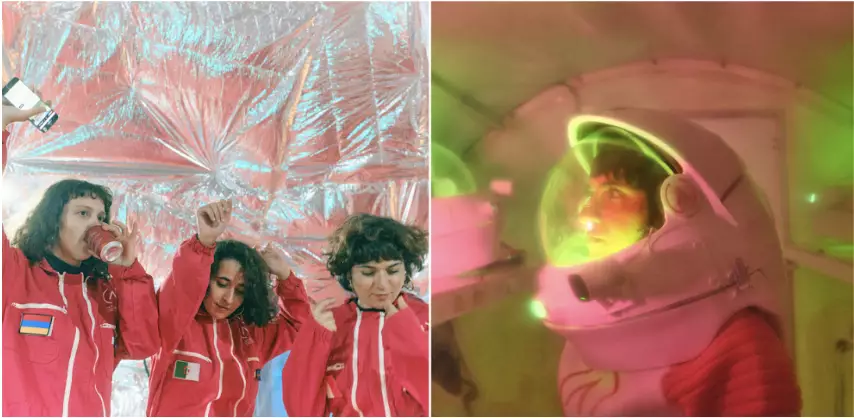Frameline Distribution’s recent acquisition of the North American distribution rights for Doppelgängers³, directed by Dr. Nelly Ben Hayoun-Stépanian, marks a significant moment in the intersection of film, LGBTQ+ representation, and space exploration dialogues. The film promises to propel viewers into a thought-provoking analysis of gender, history, and free thought, pushing boundaries while exploring the uncharted territory of outer space. Examining life beyond our planet is no longer just a scientific endeavor; films like Doppelgängers³ prompt serious cultural conversations about inclusivity and the impact of societal structures.
Doppelgängers³ stands out not merely for its subject matter but for its innovative format—termed a “filmic essay-meets-documentary.” This structural combination invites audiences to engage with its themes not just intellectually but emotionally, as it invites diverse interpretations. The film’s ability to intertwine academic discourse with compelling visual storytelling exemplifies the growing trend of documentaries as art forms capable of sparking social change.
Having previously championed boundary-pushing films, Frameline Distribution provides an ideal platform for a project such as Doppelgängers³. With a 44-year history and a reputation for celebrating LGBTQ+ narratives, Frameline’s endorsement is synonymous with support for groundbreaking filmmakers. This alignment emphasizes the cultural necessity of recognizing and uplifting marginalized voices in cinema.
The upcoming limited theatrical release in major U.S. cities during the fall of 2025 will give the film unprecedented visibility. Notably, a private screening scheduled at the Berlinale is a pivotal moment—a space where audiences, critics, and other filmmakers intersect for dialogue and exchange, further enhancing the impact of the documentary.
Dr. Ben Hayoun-Stépanian tackles challenging societal issues within her film, particularly in how they relate to space exploration. In her statement, she highlights the urgent need to rethink our approach to frontiers, specifically through the lenses of diasporic and ecofeminist futures. Space has often been viewed as an abstract and elite pursuit, primarily by wealth-driven corporations. However, Doppelgängers³ calls attention to pressing real-world challenges such as extraction, colonization, and exploitation that exist not only on Earth but are now threatening other celestial bodies.
The film’s exploration of these topics resonates deeply with contemporary debates around capitalism, globalization, and environmental degradation. By addressing these issues, the documentary elevates the conversation beyond aesthetics and entertainment to a critical examination of values that should guide humanity’s reach into the cosmos.
Music plays a central role in Doppelgängers³, with contributions from renowned artists like Pussy Riot and Colin Self. The auditory dimension complements the visual experience, enhancing how themes of diversity and resistance are articulated. Sound has always been a conduit for revolutionary ideas, and the infusion of avant-garde tracks paves the way for viewers to experience the film viscerally.
This approach aligns sharply with Dr. Ben Hayoun-Stépanian’s artistic philosophy, where she aims to cultivate playful authenticity. The seamless blend of sound and visual storytelling aims to make expansive themes accessible while fostering an inclusive space within the narrative framework.
Doppelgängers³ is pivotal at a time when conversations around who gets to claim space are more critical than ever. By advocating for a reevaluation of space exploration parameters, Dr. Ben Hayoun-Stépanian urges audiences to question existing power structures. With calls for inclusivity, queer perspectives, and transnational thinking, the film does not shy away from critiquing normative ideologies.
The filmmaker’s standing as a senior fellow at the Hannah Arendt Center suggests she is not merely talking about these necessary shifts, but actively engaging in dialogues about demilitarization and decolonization of outer space. Her extensive experience frames her work in a way that blends theoretical concerns with actionable insights, urging society to reflect on how we can collectively envision a more equitable future, both on Earth and beyond.
Doppelgängers³ represents a daring fusion of themes that defy traditional narratives, calling for an empowered vision of inclusivity and environmental ethics. As it prepares for its North American debut, the film stands on a precipice of cultural significance, inspiring conversations that resonate far beyond the screen.
